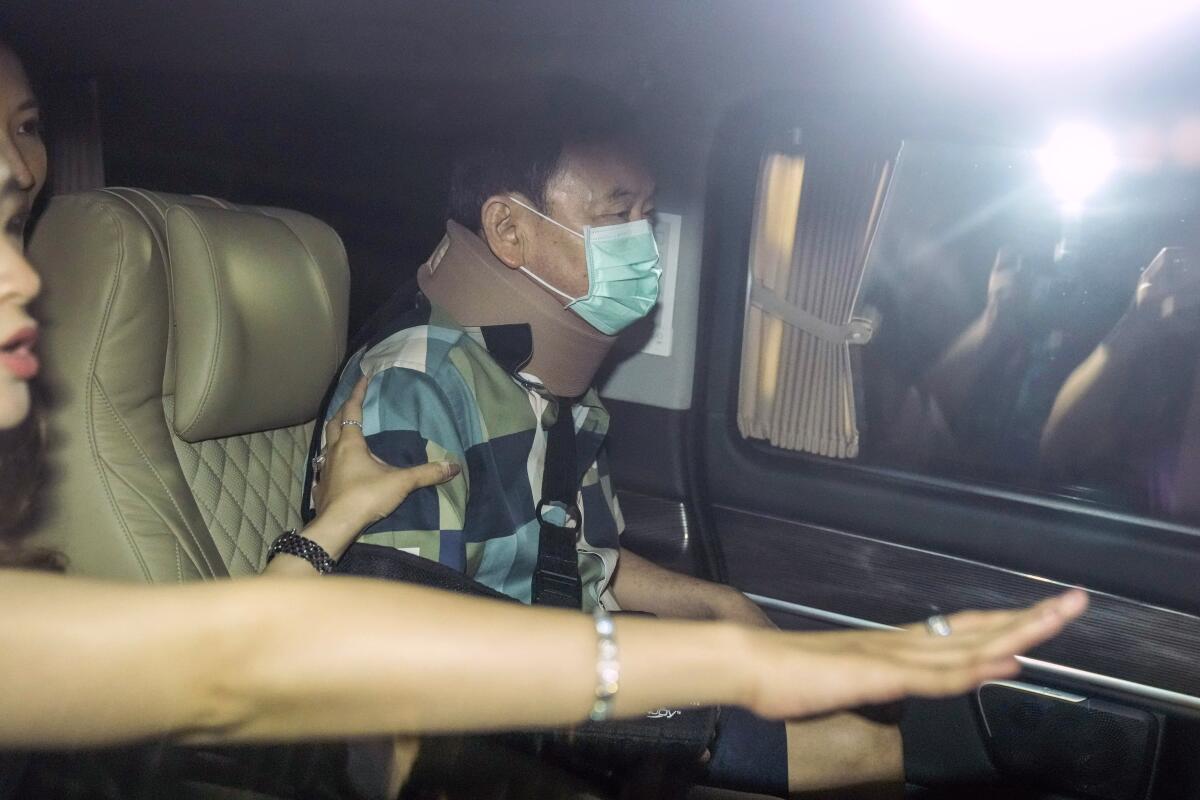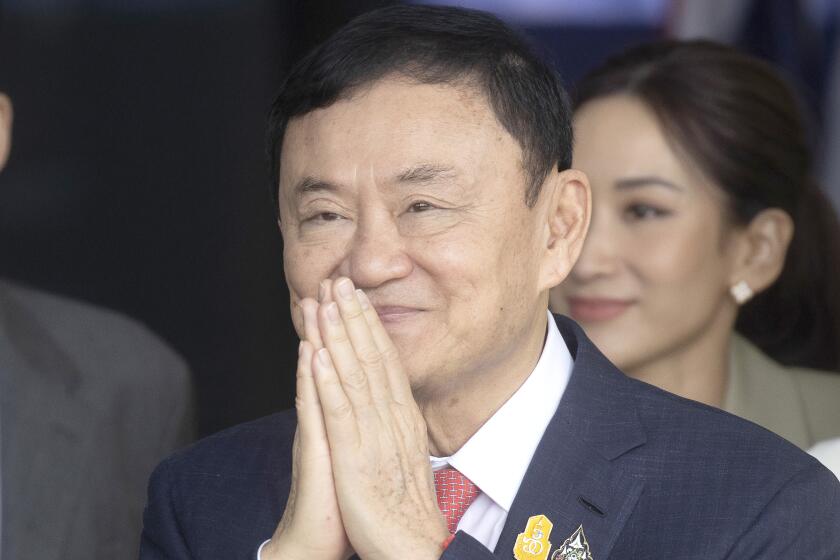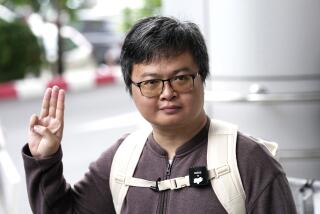Former Thai Prime Minister Thaksin is free on parole. Can he restore his political luster?

BANGKOK — Thailand’s former Prime Minister Thaksin Shinawatra, the nation’s most controversial politician for more than two decades, was released on parole this week from a Bangkok hospital where he spent six months serving time for corruption-related offenses.
The telecommunications billionaire was toppled in a 2006 coup but last year voluntarily returned to Thailand from self-exile and reported to prison to begin serving an eight-year sentence.
Critics contended that the 74-year-old’s early release reeked of a deal made for political reasons.
The current prime minister, Srettha Thavisin, a member of the ruling Pheu Thai Party, which is backed by Thaksin, expressed congratulations to his predecessor.
Thaksin was seen wearing a neck brace, a sling on his right arm and a surgical mask inside one of the cars that left the Police General Hospital on Sunday. He was accompanied by his two daughters on the way to his residence in western Bangkok.
“Thaksin is still believed to wield huge influence and will still maneuver for sure; he will conduct the music behind the scenes,” Thitinan Pongsudhirak, a political science professor at Bangkok’s Chulalongkorn University, said. “But Pheu Thai has less power than they used to, and we’ll have to see how he does it.”
After his return from exile, Thaksin was moved almost immediately to the hospital on grounds of ill health. About a week later, King Maha Vajiralongkorn reduced his sentence to a single year.
Thailand’s king has reduced former Prime Minister Thaksin Shinawatra’s prison term from eight years to one after Thaksin’s return to the country.
The former leader had won unprecedented electoral support but also influential enemies among Thailand’s traditional royalist ruling class during his time in office from 2001 to 2006.
He was accused of corruption and abuse of power, as well as disrespect for the monarchy, when the military removed him from power in 2006. Thailand’s conservative elite, including the army, regarded his popularity and brash populist politics as a threat to the royal institution, which they see as a linchpin of Thai society.
Even after his ouster, Thaksin’s supporters and opponents continued their struggle for power with violent street fighting, election battles, confrontations in the courts and another coup in 2014 that ousted a government that had been formed by Thaksin’s sister.
Last year’s elections brought change when the progressive Move Forward Party unexpectedly finished on top — the first time since 2001 that a Thaksin-backed party failed to lead the polls. Move Forward’s proposals for reforms to the monarchy and the military resonated with young voters, weary of the army-backed governments that had held power since the 2014 coup.
Move Forward was stymied when the military-appointed Senate refused to approve its candidate for prime minister, paving the way for Pheu Thai to form a coalition government, including parties linked with the military. Pheu Thai softened its long-standing anti-military line and the reform proposals it promised during the election campaign.
Move Forward, which leads the parliamentary opposition, issued a statement Sunday reflecting widespread suspicion that Thaksin received a sweetheart deal because of his political influence. At the same time, it acknowledged that Thaksin’s ouster was unfair and undemocratic.
Thaksin has insisted that his prosecution in the courts was politically motivated.
Thaksin is not yet clear of all legal challenges. Thai officials this month said they have reopened an investigation into allegations of defaming the monarchy made against Thaksin almost nine years ago. If the Office of the Attorney General decides to indict him, Thaksin could be detained again.
His youngest daughter, Paetongtarn Shinawatra, who recently became leader of the Pheu Thai Party, on Sunday afternoon posted a photo to Instagram of Thaksin sitting in shorts by a swimming pool, still wearing the neck brace and sling.
“After not breathing air and seeing the sun on the outside for 180 days, and not being back to this house for 17 years … Dad came to sit outside like this. He sat there for quite some time,” she wrote, adding “#finally home” and a heart emoji.
More to Read
Sign up for Essential California
The most important California stories and recommendations in your inbox every morning.
You may occasionally receive promotional content from the Los Angeles Times.











